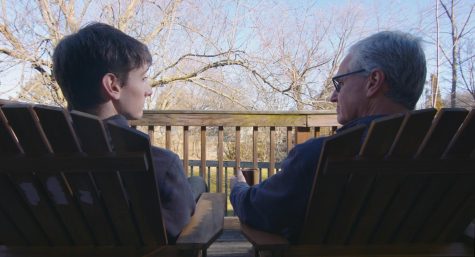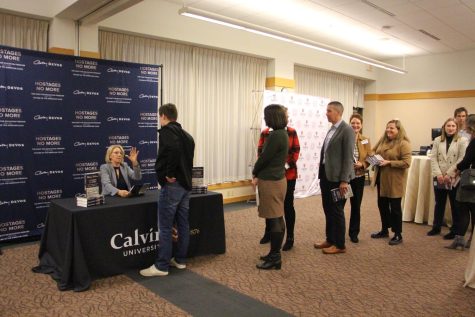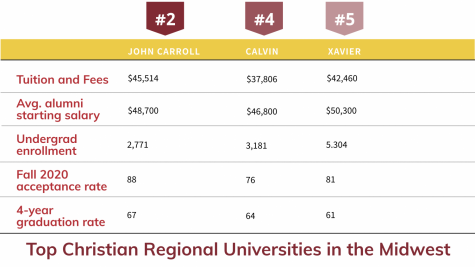Panel of local farmers digs into food justice
Think about the last thing you ate. Maybe you know where it came from: the store, a friend’s fridge, the dining hall. Every time we eat food we participate in the huge community cycle of eating, something that some students at Calvin believe is worth noticing.
The Food Recovery Network is a nationwide non-profit organization, a chapter of which was started by junior Cameron Kritikos when he was a freshman. Leadership members of the Calvin chapter also include senior Martin Cervantes, senior Joey Budi, junior Hannah Biggs, sophomore Brianna Busscher, and first-year student Isabel Selles. The organization is involved with food justice, urban farming, public health and advocacy. They firmly believe that simply giving people healthy food will not solve all the problems in food justice, and that people should start thinking about the intersection of food justice issues in different areas of their lives, as well as advocacy in seeking structural change in food justice.
About 40 Calvin students attended the Pitchforks and Panelists event this past Friday, as well as faculty and staff. Smoothies from the Malamiah Juice Bar were provided, as well as locally grown salad. Both were opportunities to feed people good food and also support local businesses.
The Food Recovery Network organized Pitchforks and Panelists, inviting representatives from the local community interested in similar ideas of food justice. All of these representatives were from the Grand Rapids area and people who the Food Recovery Network believed would help expand the knowledge of some of the Calvin community pertaining to urban farming, public health and advocacy.
One panelist was Jermale Eddie, who, with his wife, co-founded Malamiah Juice Bar. Eddie is also the director of Reach IN ministries at Madison at the Ford. Another panelist was Lisa Oliver King, who is a representative from the Our Kitchen Table organization and who has lots of work experience with advocacy. The final panelist was Lance Kraai from New City Neighbors, a farm manager who had expertise with zoning codes and laws regarding urban farming.
Kritikos thought the panelists “all brought a very unique perspective … not just for the Calvin community but the community at large.”
“I think our vision initially was for […] students to see that there are not simple solutions to complex problems,” said Kritikos. “If students walked away knowing that these solutions are not impossible to solve but they are hard then I’d say we succeeded.”
This may not at first seem like a justice issue until the concept is explained: eating and growing is a part of a person’s inherent and natural power, and it’s flawed to say that some have more food and therefore more power than others in the way of such a basic human necessity. It gives people power to name others’ brokenness.
Justice issues are difficult because “to address injustice takes incredible bravery,” said Kritikos, “because it involves taking power from people in power but it doesn’t mean it’s impossible.
“Having the options [of where our food comes from] puts us in closer relationships with those who are involved with the food system,” said Kritikos. He continued, saying that people are so fundamentally disconnected from the hands that pick their food that it allows people to keep a distance between everything that goes into their food system, the planters, pickers, packager, etc.
“The greater that distance is, I think that our understanding and appreciation for that food diminishes.”
“As college students, we were challenged to advocate in our own college for a more just, sustainable food system, to explore Grand Rapids and learn more about sustainable food efforts in the city, and to read as much as we can,” said junior Gabe LePage.
The Food Recovery Network chapter at Calvin is currently working with dining hall staff to recover food from the dining halls, but looking to be doing different things as well. For example, they’re now in the researching stage of looking into the Real Food Challenge. Kritikos explained that the Real Food Challenge, “works with college campuses to put together contracts, to use a college’s purchasing power to buy local healthy food, and support local businesses and bring that food into our dining halls.” It measures percentages of how much real food the college buys, and when a college uses 20 percent real food then it is considered to be successfully completing the Real Food Challenge. Colleges can however pledge to go to even higher percentages of real food.
The Food Recovery Network chapter at Calvin is researching to see if the expansion through buying local food with the Real Food Challenge is possible at Calvin. While the campus gardens contribute some food to the dining halls, the amount pales in comparison to how much food is consumed over the entire year at Calvin.
“I think it would take a lot of research and creativity especially on our budget to convince the administration to alter the way in which we purchase food,” said Kritikos, “but I hope that Calvin is open to consider the possibility [of successfully doing the Real Food Challenge].”






